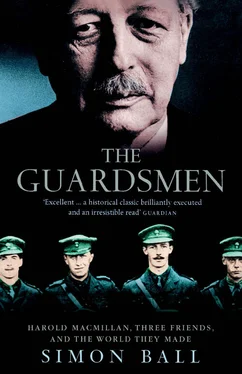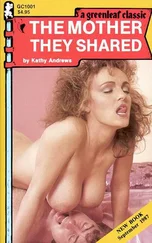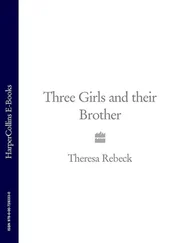The Eton the four boys attended was, on the surface, in a process of dynamic expansion. The school was nevertheless plagued with troubling undercurrents. In 1905 the long headmastership of Dr Warre came to an end. Warre had instituted an extensive building programme completed while the boys were at Eton: the gymnasium was opened in 1907, the hall in 1908 and the library in 1910. Although the fruit of previous expenditure was in the process of realization, the school was thus in a period of financial retrenchment. Warre’s departure also opened the way for a power struggle between his presumed successor, A. C. Benson, a brilliant but depressive homosexual, and the leader of the younger ‘Classics’, the acerbic A. B. Ramsay, known as ‘the Ram’. The most powerful voice on the selection panel, Lord Cobham, was able to usher in his kinsman, Edward Lyttelton, as a compromise candidate.
Oliver Lyttelton was thus faced with every schoolboy’s nightmare – a close relative as headmaster. He was frequently mortified by his uncle’s tendency to trumpet the moral superiority of the Lytteltons – which he later described as ‘washing clean linen in public’. Lyttelton’s embarrassment was accentuated by Uncle Edward’s undoubted peculiarities. No one doubted that he was a perfect Christian gentleman and a fine sportsman, but he was an indifferent classicist and soon became the butt of Collegers whose grasp of Latin far exceeded his own. He was also a health faddist, following a vegetarian diet and lauding the virtues of outdoor living. His healthy tan earned him the nickname ‘the Brown Man’ in an age that valued alabaster complexions. The headmaster’s attempts to keep in check the tendency of Etonians to lord it over the neighbouring population won him few friends in the school and met with limited success. Lyttelton failed to persuade the Master and Fellows to broaden the curriculum at the expense of an unleavened diet of literary classics. The boys, as so often, were dyed-in-the-wool reactionaries when it came to such matters. Macmillan angrily noted: ‘I am rather annoyed at the nonsense that people are talking and writing about “Education”…we are all to learn, it seems, about stocks and shares. Instead of humanities we are to dissect frogs and make horrible smells in expensive laboratories…I do not see that an ignorance of chemistry is any better than an ignorance of Classics.’ 33 Edward Lyttelton’s career at Eton was ended during the war by a brave if – given the temper of the times – unwise speech proposing that Britain should cede Gibraltar to Germany in return for peace.
Each of the boys had a rather different experience of Eton. Of the four Lyttelton’s is by far the best recorded. The main challenge he faced was the long shadow cast by his father’s glittering reputation at Eton. His solid school career was always found wanting when set next to that of Alfred. He worked hard at everything, becoming house captain of Lubbock’s and achieving entrance to the Classical First where the best scholars, whether Colleger or Oppidan, were taught together. Success had its drawbacks: ‘Everything is rather an ordeal at present,’ he reported home, ‘I mean I am always finding myself in solitary positions of responsibility; either I am leading sixth form into chapel or I am making a speech or I am commanding the company in the Corps or I am president of the debate but I am getting used to them all.’ 34 Of some importance for the future, he did plenty of soldiering. 35 His housemaster, Samuel Lubbock, who had taken the house over from Bowlby when the latter left to become headmaster of Lancing, noticed his efforts with pleasure: ‘He deserves the best report I can give him,’ he wrote to Alfred, ‘certainly the house will never have a better captain…His work has improved to a far greater [extent] than a year ago I thought probable and his marks in trials are quite encouraging.’ 36 Lubbock also made the rather rash prediction that ‘with really hard work he might just be up to a First at Cambridge’: he subsequently had to admit that his enthusiasm for Oliver’s personality had led him to overestimate his scholarly abilities.
Most pleasing of all, Oliver was finally elected to Eton’s self-selecting elite of senior boys, the Eton Society or ‘Pop’, of which, inevitably, his father had been president, in his final half. It had been a struggle to ingratiate himself. His election, Lubbock reported, ‘does credit to Pop: for great and sound as his merits are, he is rather too clever and too old [for] many average boys: as I have said before he jests rather too frequently and they don’t quite understand all his jokes…and boys are very self-conscious creatures. But he is quick at seeing things and I think he has seen this clearly enough.’ 37 Unfortunately Lubbock was rather too sanguine on the last point. Three years later Raymond Asquith reported from the trenches that ‘his chief defect to my mind is one inherited from Alfred – telling rather long and moderately good stories and laughing hysterically long before he comes to the point’. 38 Fifty-two years later, a former Cabinet colleague wrote that Lyttelton’s sense of humour ‘varied from classical to Rabelaisian or even third form…The only difficulty was that an immediate appreciation of the humorous aspects of any question was inclined to limit the expression of the arguments in mundane terms.’ 39
It was towards the end of their time at Eton that Oliver and Bobbety became close friends. For many Oppidans there was no presumption that they would go on to university; many drifted away to join the army or to travel on the Continent as a means of finishing their education. Lyttelton bemoaned the fact that by 1910 ‘all my particular pals will be gone except Cranborne’. 40 From then on the two started messing together. 41
Fifty years on Osbert Sitwell reminded Bobbety ‘that you were a studious small boy’. 42 Yet if his scholarly performance was anything to go by, the school inspectors who visited Eton in 1910 might have been thinking of Cranborne when they wrote in their report: ‘we do not forget that Eton’s highest service to the nation is that she educates boys whose circumstances make it difficult or impossible for the school work to be as important in their eyes as it is in the eyes of less fortunate schoolboys’. The main strength of the Eton education was languages and Cranborne left School in 1911 with no firm grasp of any, whether classical or modern.
In College meanwhile Crookshank made good progress. His main problem was a complete lack of sporting prowess. Even Macmillan, a self-confessed duffer at games, was picked for the College team that played the Oppidans at the uniquely Etonian form of football known as the Wall Game. Crookshank was no more than an ardent admirer of those who could play. The Daily Graphic printed a picture of him among the crowd carrying the Collegers’ wall keeper in triumph after College had defeated the School. ‘It is dreadful,’ he lamented in 1917, while serving in Salonika, ‘this is the first Wall Match I have missed since I first went to Eton in 1906. I suppose it had to come some time, but it is rather a bitter blow.’ 43 Apart from his deficiency in games he excelled in most other areas. He was good at his work, was a fine debater, edited the school magazine and was elected to Pop with rather more ease than Lyttelton. In their final year these two found themselves thrown together quite regularly. They studied classics together, with Crookshank consistently near the top of the class, Lyttelton consistently near the bottom. 44 At their final speech day in June 1912, Lyttelton gave a reading from the essay ‘On Murder Considered as One of the Fine Arts’ by de Quincey, Crookshank from Lincoln’s second inaugural. They performed together in a sketch adapted from the Pickwick Papers: Crookshank taking the part of Mr Phunky, Lyttelton of Sam Weller. 45
Читать дальше












